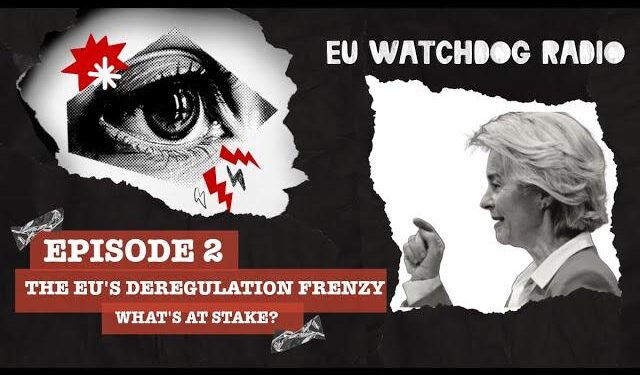The European Union’s financial regulator is intensifying efforts to resolve the ongoing equivalence impasse surrounding UK covered bonds, aiming to restore smoother cross-border debt flows post-Brexit. As London remains a key global hub for covered debt issuance, the move by EU authorities underscores the urgency to stabilize market access and legal certainty for investors on both sides. The Luxembourg Times reports on the EU watchdog’s latest proposals and the potential implications for the UK’s financial sector amid continuing regulatory divergence.
EU Watchdog Proposes Regulatory Adjustments to Restore Equivalence for UK Covered Debt
The European Securities and Markets Authority (ESMA) has put forward a series of proposed regulatory changes aimed at reinstating equivalence for the UK’s covered bond market following the UK’s post-Brexit divergence in financial frameworks. These adjustments are designed to realign EU rules with recent UK reforms, which have raised concerns over market access and risk assessment equivalence. ESMA emphasized that restoring equivalence is crucial for maintaining financial stability and ensuring a level playing field for investors relying on UK-covered debt instruments.
Key elements of the proposal include:
- Enhanced transparency requirements for UK issuers to improve compliance visibility.
- Revised risk assessment criteria aligning with EU standards while accommodating UK-specific market features.
- Updated reporting protocols facilitating more efficient cross-border supervision.
These changes are expected to be open for consultation over the coming months, with ESMA seeking stakeholder input to fine-tune the balance between regulatory alignment and market autonomy. The move signals the EU’s commitment to resolving the equivalence impasse, which has significant implications for capital flows and investor confidence across European debt markets.
Implications of Equivalence Status on UK-EU Financial Market Stability
As the EU grapples with the ongoing equivalence status dilemma, the stability of UK-EU financial markets hangs in a delicate balance. Equivalence decisions, which allow UK financial services firms to operate within EU markets under mutually recognized regulatory standards, are critical for ensuring seamless capital flows and market confidence. The current uncertainty undermines investor trust and threatens the liquidity of covered debt markets, potentially triggering wider systemic risks. Market participants fear that prolonged ambiguity could lead to fragmentation, increased compliance costs, and reduced market access for UK issuers, disrupting the integrated financial landscape that both sides have long relied upon.
The European Securities and Markets Authority (ESMA) has signaled a willingness to mitigate these risks by revisiting and potentially reforming the equivalence framework for UK covered bond markets. Key considerations include:
- Regulatory alignment: Ensuring UK regulations continue to mirror EU standards without compromising supervisory objectives.
- Transparency measures: Enhancing disclosure requirements to build mutual trust and reduce information asymmetries.
- Contingency protocols: Establishing clearer guidelines for temporary equivalence decisions to prevent abrupt market disruptions.
| Factor | Potential Impact |
|---|---|
| Delayed Equivalence Renewal | Liquidity Squeeze |
| Stricter Disclosure Rules | Investor Confidence Boost |
| Temporary Transitional Policies | Market Stability |
Experts Recommend Enhanced Coordination to Resolve Persistent Equivalence Challenges
Financial authorities and industry experts emphasize the urgent necessity for stronger collaboration between UK regulators and the European Union to address the ongoing equivalence hurdles impacting covered debt markets. The lack of mutual recognition has led to market fragmentation, increased compliance costs, and uncertainty for investors on both sides of the Channel. Experts call for establishing a clear, predictable framework that aligns regulatory standards while respecting the autonomy of each jurisdiction. Without such coordination, the risk of prolonged market inefficiencies and diminished investor confidence remains high.
Key recommendations from the sector include:
- Regular bilateral regulatory dialogues to synchronize oversight practices
- Enhanced transparency on regulatory decision-making to reduce ambiguity
- Creation of a joint task force dedicated to equivalence assessments and dispute resolution
- Implementation of streamlined approval processes for covered bonds and related instruments
| Stakeholder | Recommended Action | Expected Benefit |
|---|---|---|
| UK Regulators | Harmonize reporting standards | Reduced compliance complexity |
| EU Authorities | Increase engagement frequency | Improved predictability of rulings |
| Market Participants | Advocate for regulatory clarity | Greater market confidence |
In Summary
As negotiations between the EU and UK continue, the European watchdog’s efforts to resolve the equivalence status for UK covered bonds represent a critical step toward stabilizing cross-border financial markets. Stakeholders across the sector will be closely monitoring further developments, which will have significant implications for investors and issuers operating within both jurisdictions. The coming months will be decisive in shaping the future framework governing covered debt and maintaining seamless financial cooperation post-Brexit.
















